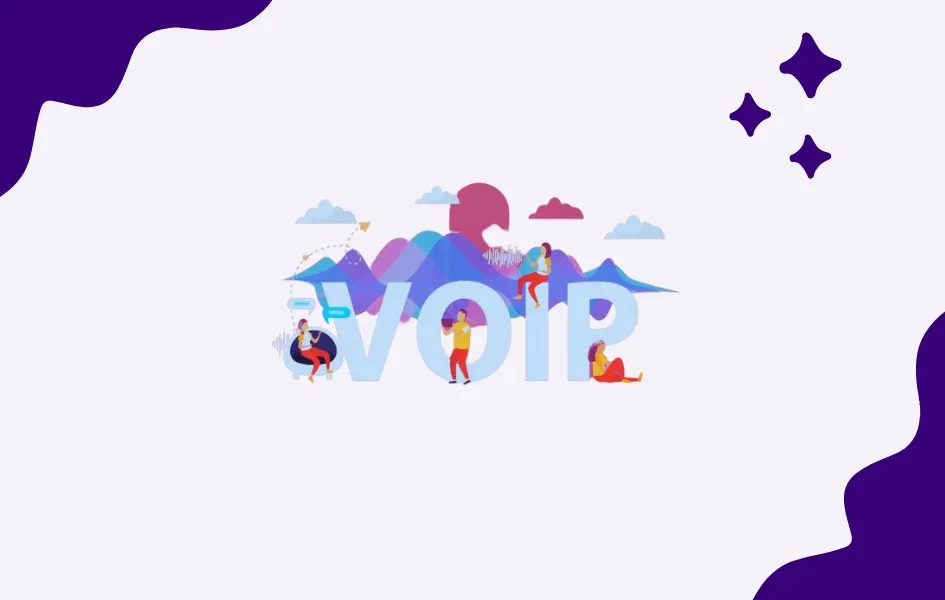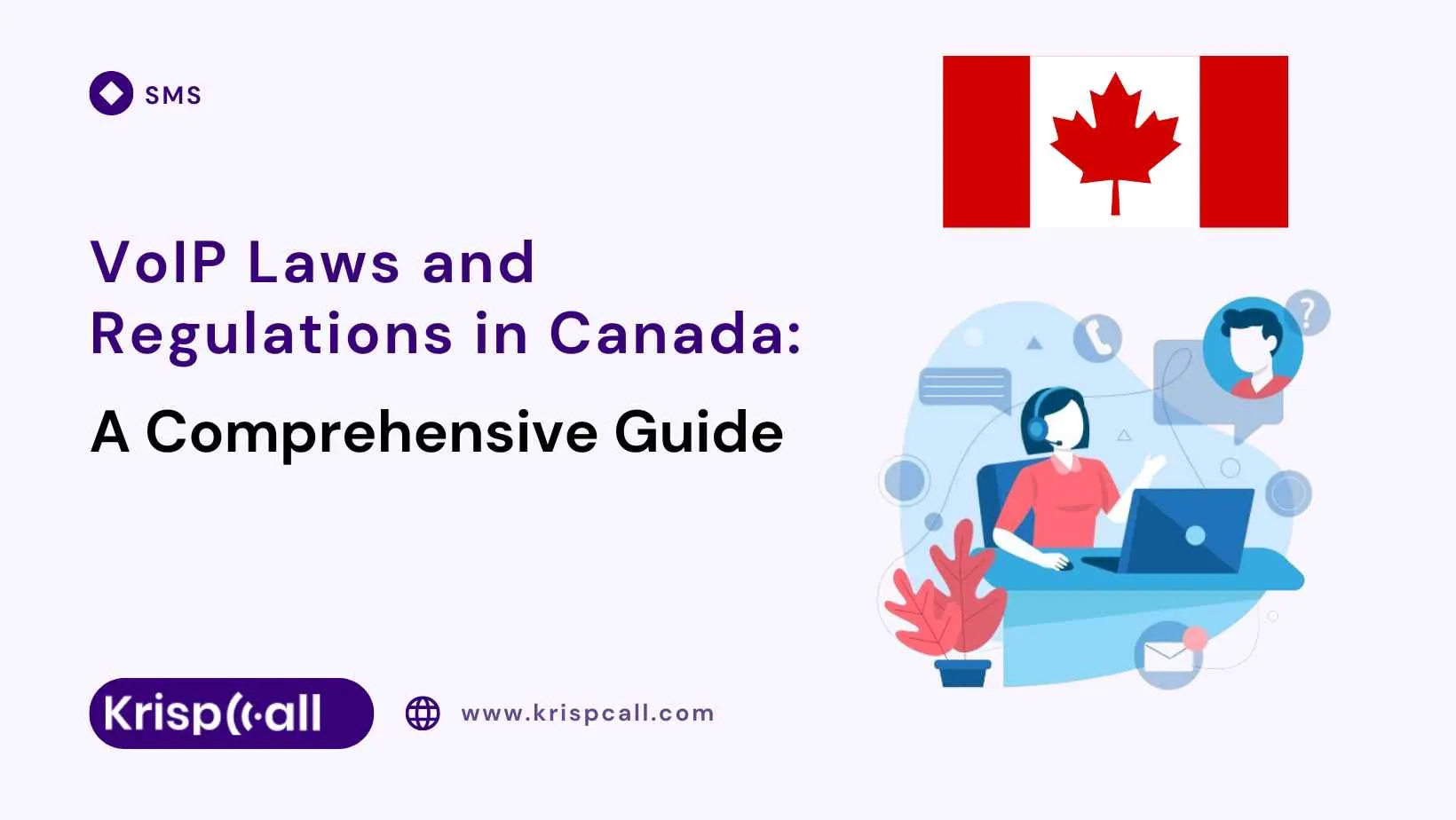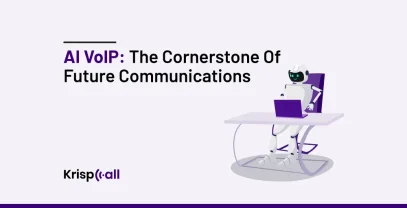Canadian businesses are following the trend seen in the United States by transitioning from traditional legacy systems to modern VoIP (Voice over Internet Protocol) phone solutions. It shows the growing recognition of VoIP technology’s benefits, such as cost savings, scalability, and advanced communication features.🌟
The fast growth of the VoIP business in Canada has led the government to implement several laws and regulations. These measures aim to protect the interests of companies, service providers, and customers while providing reliable and secure communication.
This guide covers VoIP laws and regulations in Canada, including the role of the CRTC and the Telecommunications Act, the requirement of obtaining a VoIP license, privacy and security concerns, and additional legal considerations.
🗝️Key Highlights
- The CRTC regulates VoIP services, verifies compliance with standards, and responds to customer complaints.
- VoIP providers must adhere to regulations outlined in the Telecommunications Act, including emergency services and network interconnection obligations.
- Providers require either Class 1 or Class 2 VoIP licenses, depending on whether they use their own telecom infrastructure or lease it from other companies.
- VoIP services must comply with privacy laws like PIPEDA.
- The CRTC mandates security measures for VoIP services to protect against unauthorized access, interception, and data breaches.
Let’s get started. 🚀
What is VoIP?
VoIP (Voice over Internet Protocol) is a technology that allows you to make voice calls using the Internet rather than traditional telephone lines. It converts your voice into digital signals and transmits them over the Internet.

A VoIP system enables you to call from a computer, smartphone, or other internet-connected devices. VoIP services can range from simple voice calls to advanced features like call analytics, voicemail, unified callboxing, call transfer, and call forwarding.
Who is responsible for regulating VoIP in Canada?
The Canadian Radio-television and Telecommunications Commission (CRTC) regulates VoIP (Voice over Internet Protocol) services in Canada.
The CRTC monitors regulatory obligations such as emergency service access, consumer rights, and legal frameworks. It is governed under the Telecommunications Act and Broadcasting Act.
They are crucial in maintaining a fair and secure environment for VoIP services in Canada. It also helps to promote innovation, competition, and the overall growth of the VoIP market while safeguarding the interests of Canadian consumers.
Role of CRTC
Here are the role of CRTC:
- It monitors and regulates broadcasting and telecommunications for the public benefit.
- It provides licenses to telecommunications providers, including VoIP service providers.
- It protects consumer’s interests by ensuring fair competition, promoting affordable rates, and addressing customer complaints about telecommunications services, including VoIP.
- It oversees the quality of telecommunications and VoIP to guarantee that customers obtain reliable and high-quality communication services.
- It enforces regulatory compliance and takes action against companies that violate regulations.
- It develops policies and frameworks that guide the telecommunications industry, including VoIP services, in network neutrality, privacy protection, and accessibility.
What are the requirements for getting a VoIP license in Canada?
Businesses must follow the guidelines provided by the Canadian Radio-television and Telecommunications Commission (CRTC) to receive a VoIP license in Canada.
In Canada, the CRTC issues two types of licenses for VoIP service providers:
- Class 1 License: This license type is for providers who deliver VoIP services using their telecommunications infrastructure, such as network switches and routers. They have complete control over their network and infrastructure.
- Class 2 License: Service providers who rent telecommunications infrastructure from other companies, such as internet service providers (ISPs), fall under Class 2 licenses. These providers rely on leased infrastructure to deliver VoIP services rather than owning the infrastructure outright.
Some requirements for getting a VoIP license in Canada are:
- VoIP providers must register with the CRTC as a telecommunications service provider.
- VoIP systems must meet technical requirements, such as reliable voice quality and connectivity.
- The CRTC also considers economic and competitive factors when granting VoIP licenses.
- Providers must follow the CRTC’s regulatory guidelines, which include emergency service access, consumer protections, and law enforcement assistance.
- VoIP service providers in Canada must have adequate standard operational procedures for billing, support, and grievance redressal.
- Providers need to demonstrate that they are in a financially stable position to sustain their telecommunications services reliably.
Regulatory framework for privacy and security in Canadian VoIP services
1. Privacy concerns
VoIP services raise significant privacy and security concerns due to voice data transmission over the internet.
In Canada, there are specific regulations in place to address these concerns and protect users’ privacy and security.
The Personal Information Protection and Electronic Documents Act (PIPEDA) is a key regulation protecting individuals’ privacy when using telecom services, including VoIP.
Here are some essential points regarding PIPEDA and VoIP services:
- Scope of PIPEDA: PIPEDA applies to all businesses that collect, use, or disclose personal data for commercial purposes. This includes customer data such as names, addresses, and phone numbers collected by VoIP services.
- Consent requirement: PIPEDA mandates that companies must obtain user consent before collecting, using, or disclosing their personal data. This consent must be informed and voluntary.
- Data integrity controls: Companies operating VoIP services must have adequate controls to ensure the integrity and security of user’s personal data. These controls must include measures to protect against unauthorized access or data breaches.
2. Security concerns
In addition to PIPEDA, the CRTC imposes VoIP security regulations on VoIP services to enhance network security and protect user information. Some of these regulations include:
- Implementation of security frameworks: VoIP service providers must implement security frameworks such as encryption protocols, firewalls, and intrusion detection systems to protect their networks and users’ data.
- Security incident reporting: In the event of a security breach, VoIP service providers must promptly report the incident to the CRTC and affected customers. This creates transparency and prompts a timely response to security threats.
- Maintenance of security records: VoIP service providers must maintain records of security incidents and document the measures taken to address them. This helps to monitor and improve security practices.
Additional legal considerations
Here are some other legal considerations for VoIP service providers in Canada:
- Emergency 911 services: Providers must ensure that all customers can access 911 emergency services through their VoIP service. This includes providing accurate location information to emergency responders to facilitate quick assistance.
- Unsolicited telecommunications: Canadian laws regulate unsolicited telecommunications, such as telemarketing calls, to protect consumers. VoIP providers must comply with these laws to prevent customers from receiving unwanted calls or messages.
- Net neutrality: VoIP services operating in Canada must adhere to net neutrality principles. It makes sure that all internet traffic is treated equally without discrimination or preferential treatment. The CRTC has guidelines in place to enforce net neutrality.
- Intellectual property: VoIP services need to respect intellectual property rights. Providers should not infringe on patents or other intellectual property owned by third parties. Obtaining licenses or paying royalties for patented technology is essential for legal compliance.
- Number portability: VoIP services should offer number portability, allowing users to transfer their existing phone numbers to their VoIP service. It promotes customer flexibility and competition among service providers.
Wrapping up
In conclusion, understanding and complying with VoIP laws and regulations in Canada is crucial for businesses to operate ethically, protect consumer interests, and ensure reliable and secure communication services.😀
VoIP service providers must stay updated with regulatory requirements, maintain high privacy and security standards, and contribute to a competitive telecommunications market in Canada.
If you’re searching for a VoIP service provider that follows Canadian laws and provides excellent VoIP services, you can use KrispCall.
KrispCall is a leading VoIP service provider with advanced features such as a Unified Callbox, Interactive Voice Response (IVR), SMS, MMS, auto voicemail transcription, and live call monitoring. It offers local, mobile, virtual, international, vanity phone, and toll-free numbers.
Additionally, it provides flexibility, scalability, and an excellent user experience at a low price, making it a fantastic solution for businesses navigating the legal framework of VoIP in Canada.
Don’t miss out—try KrispCall now and boost your customer experience.🚀
FAQs
Are VoIP services regulated in Canada?
Yes, VoIP services are regulated in Canada. They fall under the Canadian Radio-television and Telecommunications Commission (CRTC) jurisdiction.
What are the essential laws and regulations governing VoIP in Canada?
The fundamental laws and regulations governing VoIP in Canada include the Telecommunications Act and related CRTC decisions and policies.
Do VoIP providers need to comply with emergency services access requirements?
Yes, VoIP providers in Canada must provide access to emergency services such as 911.
Are there specialized law firms in Canada that focus on VoIP system law?
Yes, there are law firms in Canada that specialize in telecommunications law, including VoIP system regulation and compliance.





